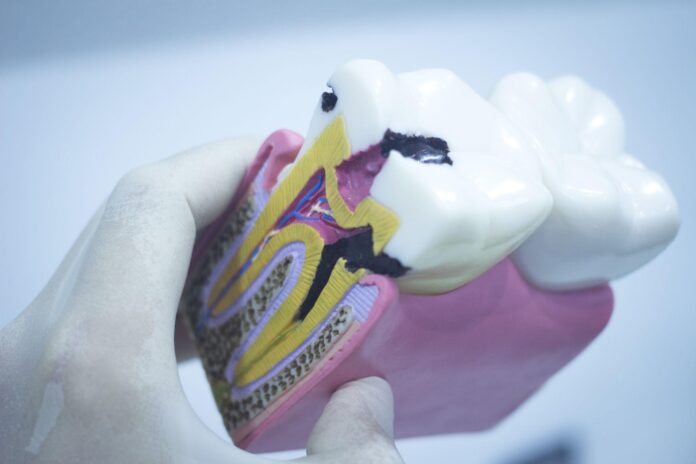Tooth Decay Treatment
Tooth decay is one of the most common health issues, especially when it comes to dentistry. There are different stages of this problem, and it’s easily fixable. At least if you act on time. And this is why you should know about possible treatments for tooth decay.
There are many general dentists you can find near you, but it is crucial to find someone reliable that will be able to solve the issue. And you can always visit the Aura Family Dental website to learn more information.
It is the simplest way to avoid potential problems in the future, and even if you don’t feel any signs of tooth decay, you will need to visit a dentist since they will be able to see whether there are early signs of tooth caries and other conditions.
Tooth Decay
Tooth decay is one of the most common oral conditions, and the majority of people struggle with it. Cavities or tooth decay are permanent damage to your teeth. And if left untreated, it can worsen and lead to tooth loss.
But what happens to teeth? Why do dental caries appear in the first place? There are a couple of reasons why cavities may appear. In the majority of cases, bacteria will accumulate on the surface of the tooth and start destroying dentin.
And if the situation continues, the situation will worsen and reach the nerve. Needless to say, it can get quite painful, and the damage is permanent.
Can You Fix It?
The short answer is yes. There are a couple of different ways to approach the situation, and the treatment for tooth decay will depend on the amount of damage. Naturally, tooth decay in the early stages is easy to fix, and the dentist will be able to do it in no time.
This also means that you will need to consult your dentist since it is the only way for them to assess the damage and recommend a treatment method. But you alone can’t do anything about it if the decay starts developing on the tooth.
So, the only viable option is dental treatment. Fortunately, there are plenty of different options you can find, and your dentist will be able to provide more details based on your specific case.
Different Treatment Options
As mentioned before, there are a couple of different possible treatments, and they mostly depend on the severity of the situation. If you address the issue early, the dentist will be able to remove the damaged part of the tooth and use filling to cover it.
In cases where the situation worsens, and a larger part of the tooth needs removing, the dentist will need to go for fillings, and in some cases, root canal therapy has to be done. It all comes down to the damage done to the tooth enamel.
However, it is possible that the condition is beyond repair and that the tooth is so damaged that the only option is tooth extraction. But this is not the end of the process. Good oral surgeons can clean the extraction site, place a screw instead of the root and mount an implant on top of it.
And visually, there will be no difference. Implants can look as good as a real tooth, and you won’t have any problems eating or drinking. Furthermore, implants often require additional work if the tooth socket is damaged or if the bone requires grafting.
Prevention
As with the majority of things when it comes to dentistry, prevention is the key. And while you cannot treat cavities on your own, you can prevent tooth decay from appearing. The crucial thing is oral hygiene.
You will need to get an appropriate toothbrush and fluoride toothpaste, and both can be an effective way to protect your teeth. You also need to brush your teeth regularly, and it would be ideal if you’d do it after each meal.
There are also additional types of toothpaste that can help with tooth sensitivity and act as a way of preventing severe tooth decay. Additionally, you should have regular checkups at the dentist to confirm that everything is ok and that the tooth decay process hasn’t started. Or at least, to fix the problem at the early stages.
It is also highly recommended to avoid carbonated drinks and anything that can damage the chewing surface, avoid alcohol, cigarettes, tobacco-based products, and so on. And if you have any doubts or questions, you can always ask your dentist about them.
Fluoride treatments can also be helpful, but always consult your dentist before trying anything on your own. And this includes different products as well. It’s always better to be safe than sorry, and your dentist will be able to help you avoid problems in the future.
What To Do?
The first thing to do is focus on prevention and ways to improve your oral hygiene. The second thing on the list is to have regular visits to your dentist. And if you are wondering how often it is, the answer is around six months. At least if everything is ok.
You should also contact your dentist if you notice any change or difference in your teeth. Whether it is a sharp pain, sudden sensitivity, or something worse like having a chipped tooth.
And the sooner you address the problem, the easier it will be for the dentist to solve the problem. In the early stages of tooth decay, the pain won’t be as noticeable, and you won’t need a root canal treatment.
Otherwise, you might find yourself in a situation where you need to think about dental implants and different options to replace a missing tooth. But it’s always better to avoid tooth removal and focus on preventive methods. Especially for older adults.
And while severe tooth decay treatment is still possible, it can take a lot of time and money to fix the issue.














